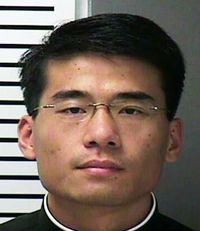Priest Asks for Sanctions against Group Withholding Information about Accusers
By Nassim Benchaabane
ST. LOUIS • A St. Louis-area priest urged a federal court Thursday to rule that an advocacy group has defied a court order to hand over private information about people who accused him of sexual abuse of a minor and to impose sanctions. The Survivor’s Network of those Abused by Priests has fought an order from a federal judge in St. Louis to hand over emails, text messages and contact information of people who accused Rev. Xiu Hui “Joseph” Jiang of sexually abusing a boy in a Catholic school bathroom on charges that were later dropped. Jiang filed a civil lawsuit against the boy’s parents, police and SNAP leaders David Clohessy and Barbara Davis, alleging they conspired against him for monetary gain, and that police officers went after him because of his religious and racial background. SNAP had until July 22 to comply with the order, which also required turning over all records of donations attorneys for SNAP have made to the organization. The order said federal law does not guarantee privacy in the production of pre-trial evidence. Clohessy said the order was too broad and that it sought all communications about anything discussed between SNAP and the group’s lawyers for 10 years. His group joined an emergency motion filed by other people who have made accusations against Roman Catholic priests asking that the order be stayed. They said their rights would be violated if SNAP handed over the information and pointed to a state court ruling that SNAP may qualify as a rape crisis center, entitling it to keep certain communications with its clients private. Jiang’s filing Thursday accuses SNAP of running a smear campaign against him and the court’s orders to local media. He claims SNAP was objecting to the order to interfere with the lawsuit, not because of legitimate privacy concerns.
|
.
Any original material on these pages is copyright © BishopAccountability.org 2004. Reproduce freely with attribution.
